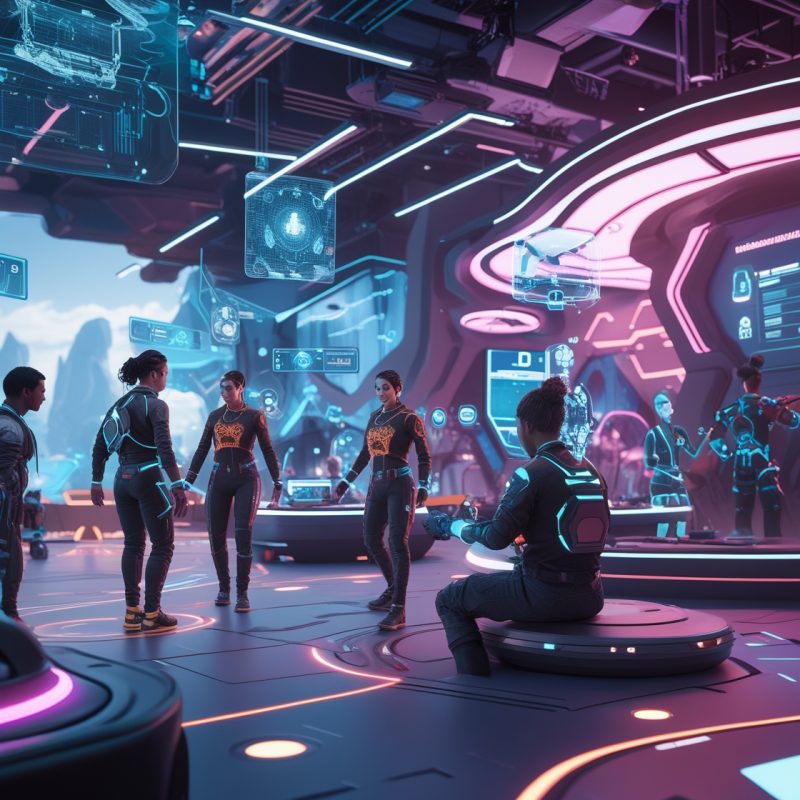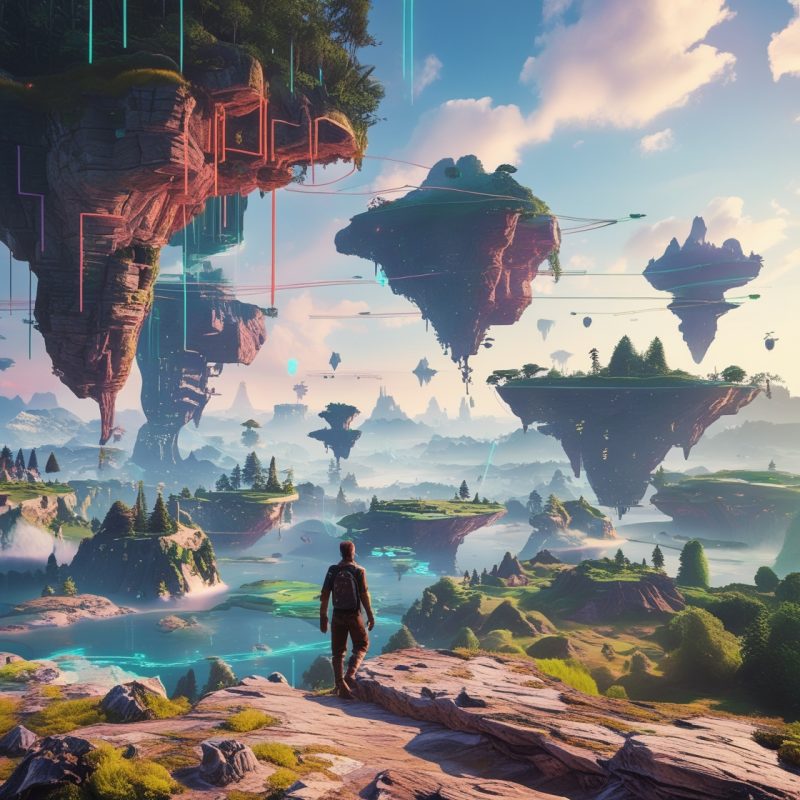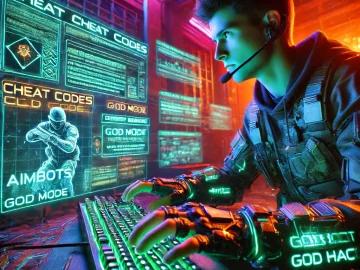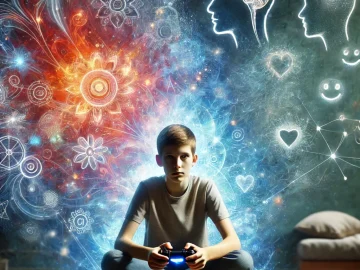How Artificial Intelligence is Shaping the Future of Video Games

In last few years, the gaming industry has gained a charming transformation, moving from basic pixel graphics and a simply gameplay to immersive worlds driven by complex technologies. The process witnessed numerous advancements, one of the major evolution being the advent of Artificial Intelligence (AI).
Artificial Intelligence in Gaming Today:
AI in Game Design:
AI has been used in game design for decades, most commonly embodied as NPCs (Non-Player Characters) that show signs of intelligent behavior. There were early examples where this would be enemies that could trail players, allies that could assist in combat, and so forth.
Today, AI is employed to create more intricate and reminiscent behaviors, enabling NPCs to respond to player actions and choose based on their surroundings
Regrammed Procedural Content Generation:
Procedural Content Generation is another area where AI has come of age. This method involves using algorithms to create game content on the fly, like levels, maps, and sometimes even whole worlds. Games like “No Man’s Sky” and “Minecraft” use procedural generation to whip up vast and unique worlds for players to explore.

These analytics help with personalization, and AI can really enhance that by understanding player behavior and preferences. This way, experiences can be tailored to fit their needs, keeping them engaged for longer.
Tailor-Made Gaming Experiences:
AI is even used to customize gaming experiences. AI, for example, can analyze player data and tailor the difficulty of the game, suggest the best in-game purchases, and change storylines based on the players choices.
The extent of customization available in these games can heighten player engagement and satisfaction, allowing them to create a highly personal experience.
The Future of AI in Gaming:
Enhanced NPC Behavior:
With rapid advancements in AI technology, NPCs are only going to get more advanced. It would develop from basic intelligence (as in possible AI) into some degree of personality as the player’s interactions with it deepen and intensify.

This could open the door to more engaging stories from their games, with players forging real relationships with characters that adapt based on what they do.
Realistic Graphics and Animation:
AI also stands ready to transform graphics and animation in games. Deep learning and neural networks can be used to produce hyper-realistic visuals and fluid animations.
It also may result in games that look and play more like real life, further blurring the boundaries between the virtual and the real. Envision a game where the characters not only look real but possess lifelike emotions and reactions.
GPT-Driven Game Development:
AI might also become a bigger figure in the future of game development. AI algorithms might help developers establish game mechanics, balance gameplay, or even write narratives.
It may simplify the development journey, enabling small development teams to create great games without being forced to expand teams.
Integration of Virtual Reality + AI:
Integration of VR with AI is another interesting frontier. These environments may react according to the players; their actions and decisions, and this is where AI plays an important role in the interacting environment found in VR.

This means we could see fully immersive worlds, where players truly feel like they are a part of the game, having real-time interactions with characters and environments that react to their actions thanks to AI.
Ethical Considerations:
AI and Player Behavior:
Ethical considerations regarding player behavior and data privacy may also be compromised as gaming technology becomes progressively integrated with AI. Developers should make sure that AI does not drive players to spend more or compulsively game.
Ensuring that players have insight into how their data will be used, as well the algorithms that will control AI decision-making processes, will be essential for maintaining trust between players and developers.
How AI Impact Game Design:
For game design, AI also raises questions about creativity and authorship. Now, who owns the content if its generated by AI? With AI’s increasing ability to compose intricate and captivating experiences, the distinction between human and machine ingenuity may fade away, resulting in lively discussions on the future of artistic representation in gaming.
Conclusion:
AI integration in gaming is currently redefining the landscape and it can do even more in the future. The possibilities are thrilling, from better NPC behavior and tailored experiences to more realistic graphics and AI-assisted development. But in embracing these technological changes, we need to reflect on our ethical responsibilities and use AI in a responsible manner.
In the constantly changing world of gaming, video games have really become a big deal in entertainment. AI is like a bright light of innovation, ready to change how we play, interact, and enjoy games in so many ways. We’re stepping into a new chapter in gaming that’s all about innovation, creativity, and a world of endless possibilities.



